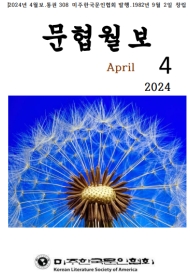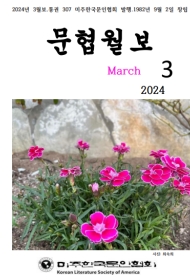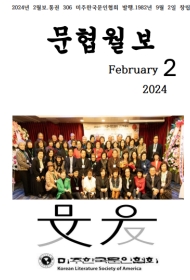Nation, Language, and the Ethics of Translation
===================================
Wolran Kim
October 2013
The expression, “translation is another creation” is the ethic that I always experience. I often write English essays in Korean first, because my first language is faster and more effective for my freethinking and steady flowing even considering the time to translate with my poor English. There are many obstacles hiding as an ambush, such as choice of words, structures of language, emotional or situational expressions, literal or free translations, and metaphors in every sentence. The fact that Google translation is always showing crappy words and sentences is showing that translation is not a simple mechanical work by converting words, but a rendering of complex elements such as the linguistic habits and situational context.
The dictionary never shows only one meaning, but there are at least three or four definitions. If I describe an equation, A+B=C, in Korean, the translated English version often shows more confusion or no sense at all. Redesigning to a different historical and cultural concept is an understandable example of Bermann’s border concept. Translation is another and different literary genre. Freedom of interpretation depends on the translators, but the freedom should be included in the requirements of the original texts.
Bermann states in the Introduction, “Though the former describes a return to divine origins, the latter suggests that translation participates in an ongoing creative process, in translation itself, as each new rendering contributes to the virtually endless delineation of language and understanding (Bermann, p.6).” Language involves various genetic components such as race, history, customs, politics, and even economic issues at the social level and linguistic habits at a personal level.
In particular, all linguistic and technical skills are destroyed when I translate my poetry, in line breaks, rhymes, levels of metaphors, dialects, and historical uniqueness. Thus, translation is often called a rebellion beyond creation; we must bring something outside of our own language system into our new system. The choice between literal translation and free translation is another significant issue. Original texts never turn into the same text depending on its translators.
For example, proverbs which are soaked in unique history and with culture intact are much more familiar when they are translated freely rather than literally. Annotation is the way to reduce the gap between the originals and their translations, and this is a consideration for the readers. Killing the original unique representations and meanings is just rebellion. One translator says that the most difficult to translate is a description of clothes and food. This shows well the historic and cultural uniqueness in the language. Bermann also says that “each language bears its own vast and endless transforming intertext of socially and historically grafted meanings (Bermann, p.5).”
Linguistic power is various and infinite; “Indeed, translation might be effectively re-thought in historical and temporal terms rather than only in ontological and spatial one (Bermann, p.6).” There are many daily words of foreign origin in the Korean language, such as radio, television, computer (English), Arbeit (German), and noblesse oblige (French). These “loaned-words” also show new words about economic and political status of the country and language.
Onomatopoeia is more fun to see the differences: An American dog barks bow-wow compared with a Korean dog crying mung-mung, American pigs squeal oink-oink, compared with Korean pigs who cry kkul-kkul. Animals never bark or cry in a different language. However, every language expresses those sounds differently, and this certainly shows the diversity and complexness of translation.
For another example, subtitles of foreign comic films hardly make people laugh, as is the director’s intention, because of a matter of translation. Intentions of jokes, satires, and gags are easy to destroy in the process of literal translation. Thus, adaptation and loose translation complements the loopholes of strict, direct, close, or literal translation.
Different translations of the Bible show a good variety of translation. Different analysis and interpretation of the Bible often cause conflicts of religious principles and separation of sects. The choice of words and phrases in Biblical translation is required prudence and consideration than others based on the Hebrew language and the spirit of the times. Ethics of translation that understands other cultures and ethnicities, and the coexistence of diversity are the way of suturing the globe with globalism.
Sometimes unnatural or awkward translated versions are recognized as evidence of faithfulness to the original. Every sentence should go through the steps of precious work to be suited in the context. Everything in the world could be the process of translation on a personal level. The author’s intention is dominated by the translator. The best translation is the minimizing of cultural conflicts and distortion, and maximizing the role of two or more different cultures being bridged.
===================================
Wolran Kim
October 2013
The expression, “translation is another creation” is the ethic that I always experience. I often write English essays in Korean first, because my first language is faster and more effective for my freethinking and steady flowing even considering the time to translate with my poor English. There are many obstacles hiding as an ambush, such as choice of words, structures of language, emotional or situational expressions, literal or free translations, and metaphors in every sentence. The fact that Google translation is always showing crappy words and sentences is showing that translation is not a simple mechanical work by converting words, but a rendering of complex elements such as the linguistic habits and situational context.
The dictionary never shows only one meaning, but there are at least three or four definitions. If I describe an equation, A+B=C, in Korean, the translated English version often shows more confusion or no sense at all. Redesigning to a different historical and cultural concept is an understandable example of Bermann’s border concept. Translation is another and different literary genre. Freedom of interpretation depends on the translators, but the freedom should be included in the requirements of the original texts.
Bermann states in the Introduction, “Though the former describes a return to divine origins, the latter suggests that translation participates in an ongoing creative process, in translation itself, as each new rendering contributes to the virtually endless delineation of language and understanding (Bermann, p.6).” Language involves various genetic components such as race, history, customs, politics, and even economic issues at the social level and linguistic habits at a personal level.
In particular, all linguistic and technical skills are destroyed when I translate my poetry, in line breaks, rhymes, levels of metaphors, dialects, and historical uniqueness. Thus, translation is often called a rebellion beyond creation; we must bring something outside of our own language system into our new system. The choice between literal translation and free translation is another significant issue. Original texts never turn into the same text depending on its translators.
For example, proverbs which are soaked in unique history and with culture intact are much more familiar when they are translated freely rather than literally. Annotation is the way to reduce the gap between the originals and their translations, and this is a consideration for the readers. Killing the original unique representations and meanings is just rebellion. One translator says that the most difficult to translate is a description of clothes and food. This shows well the historic and cultural uniqueness in the language. Bermann also says that “each language bears its own vast and endless transforming intertext of socially and historically grafted meanings (Bermann, p.5).”
Linguistic power is various and infinite; “Indeed, translation might be effectively re-thought in historical and temporal terms rather than only in ontological and spatial one (Bermann, p.6).” There are many daily words of foreign origin in the Korean language, such as radio, television, computer (English), Arbeit (German), and noblesse oblige (French). These “loaned-words” also show new words about economic and political status of the country and language.
Onomatopoeia is more fun to see the differences: An American dog barks bow-wow compared with a Korean dog crying mung-mung, American pigs squeal oink-oink, compared with Korean pigs who cry kkul-kkul. Animals never bark or cry in a different language. However, every language expresses those sounds differently, and this certainly shows the diversity and complexness of translation.
For another example, subtitles of foreign comic films hardly make people laugh, as is the director’s intention, because of a matter of translation. Intentions of jokes, satires, and gags are easy to destroy in the process of literal translation. Thus, adaptation and loose translation complements the loopholes of strict, direct, close, or literal translation.
Different translations of the Bible show a good variety of translation. Different analysis and interpretation of the Bible often cause conflicts of religious principles and separation of sects. The choice of words and phrases in Biblical translation is required prudence and consideration than others based on the Hebrew language and the spirit of the times. Ethics of translation that understands other cultures and ethnicities, and the coexistence of diversity are the way of suturing the globe with globalism.
Sometimes unnatural or awkward translated versions are recognized as evidence of faithfulness to the original. Every sentence should go through the steps of precious work to be suited in the context. Everything in the world could be the process of translation on a personal level. The author’s intention is dominated by the translator. The best translation is the minimizing of cultural conflicts and distortion, and maximizing the role of two or more different cultures being bridged.













